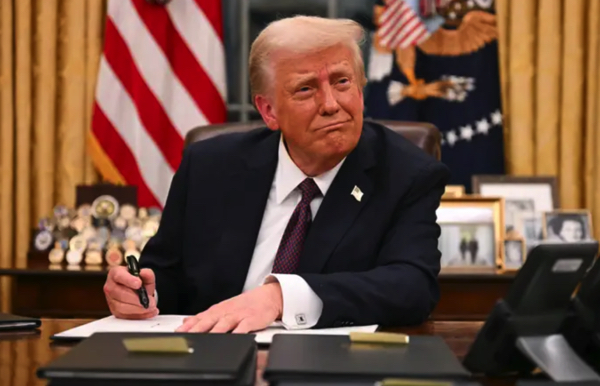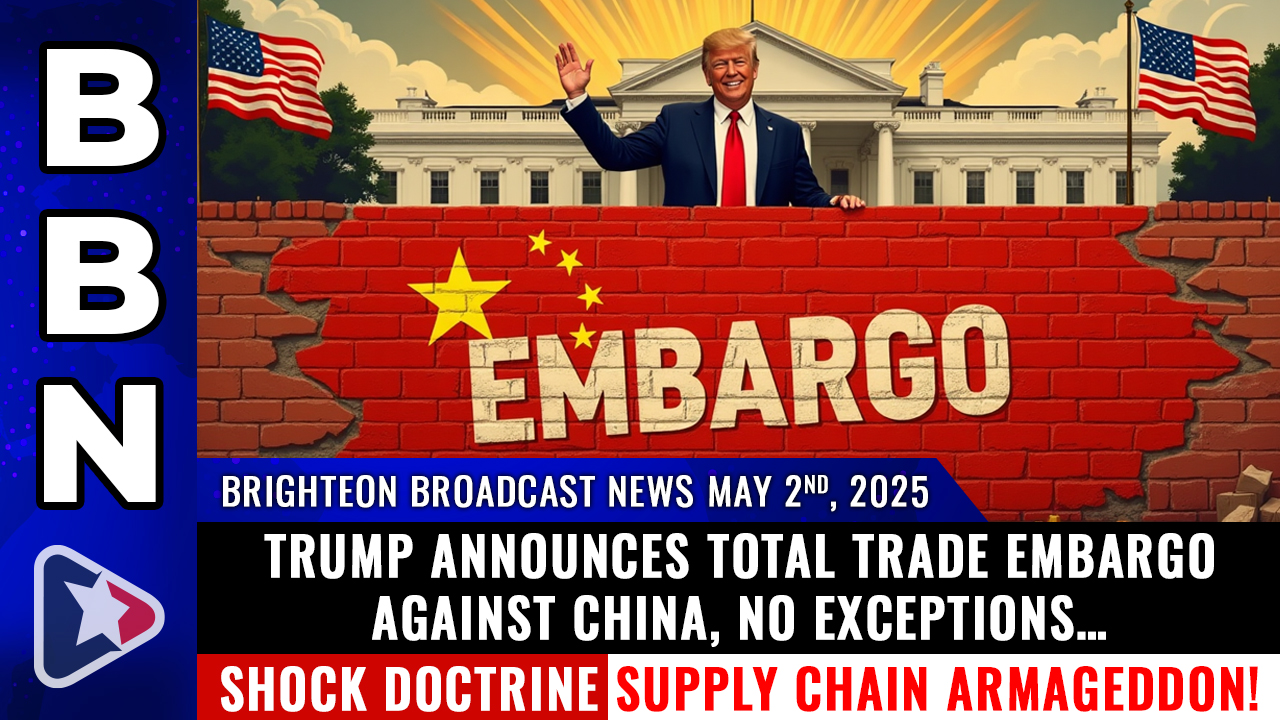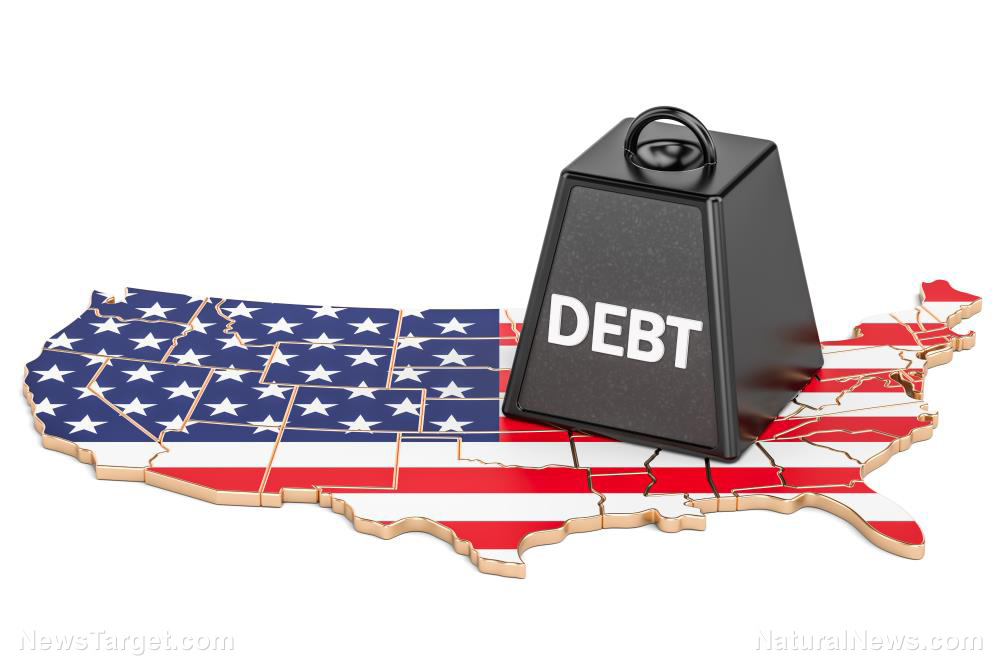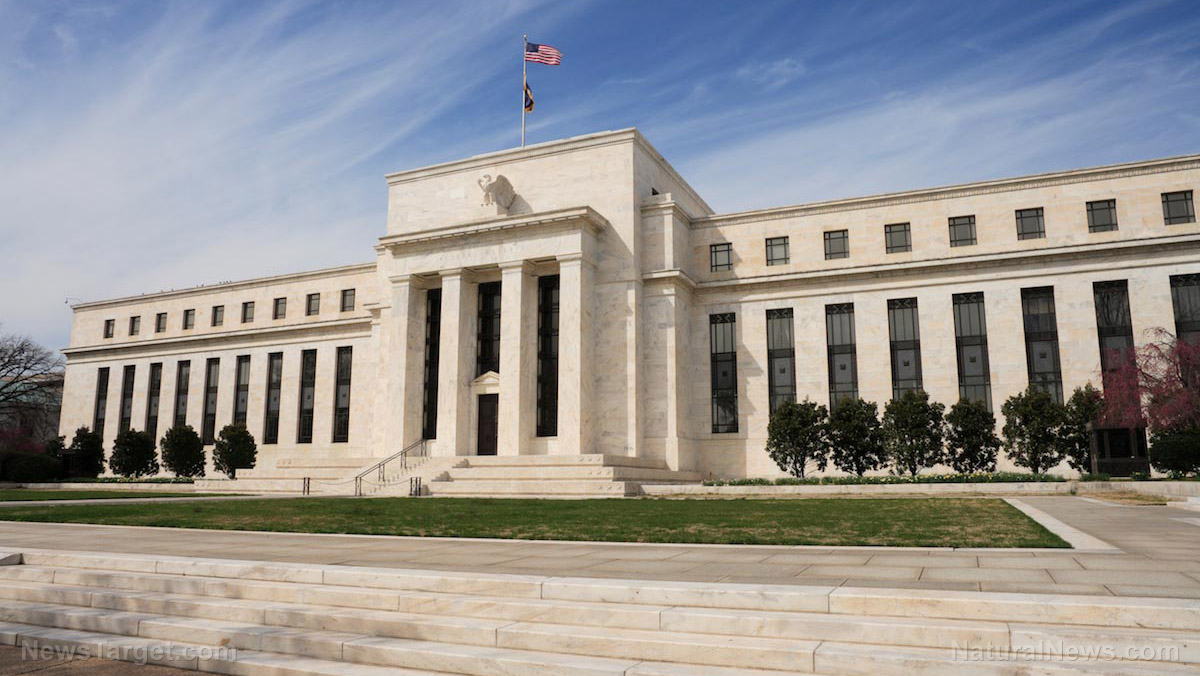Trump’s tariff policies ignite a manufacturing renaissance as U.S. businesses hail “fair play” over global dominance
04/29/2025 / By Willow Tohi

- American manufacturers and tech giants, including small firms like Walker Forge and Franchino Mold, praise Trump’s tariffs as a defense against unfair foreign subsidies. Companies report reshoring interest, with TK Mold & Engineering and NVIDIA citing increased domestic investments.
- Trump’s aggressive tariffs — up to 200% — target Chinese and Mexican imports, with bipartisan backing from industries like steel and aerospace. The policies aim to revive U.S. manufacturing by discouraging outsourcing and countering China’s trade practices.
- U.S. manufacturing jobs fell by one-third (1990–2010) due to globalization and weak trade enforcement (e.g., NAFTA). Trump’s 2018 steel/aluminum tariffs previewed his strategy, which now targets systemic issues like foreign subsidies.
- The Pentagon supports tariffs to protect critical supply chains (e.g., molds, metals) essential for defense. Small manufacturers, like Industrial Molds, Inc., are hiring more workers as demand for domestic production grows.
- While businesses credit tariffs for job growth ($2.3 trillion in manufacturing investments since 2020), critics warn of trade wars and sustainability concerns. Advocates like Legacy Precision Molds urge enduring reforms to maintain U.S. competitiveness.
On April 25, President Donald J. Trump’s aggressive tariff policies targeting foreign automakers and manufacturers in Mexico and China sparked a surge of support from American businesses, which credit the measures with stemming decades of job losses and reviving domestic industries. The administration’s strategy, framed as a defense of “fair trade,” has drawn bipartisan cheers from family-owned firms, tech giants and defense contractors, who report renewed confidence in reshoring jobs and investments. With Chinese automakers eyeing U.S. markets through Mexican plants, Trump’s vow to impose “whatever tariffs are required”—including rates as steep as 200%—has galvanized industries from steel to aerospace. Businesses nationwide describe the policies as essential to countering unfair foreign subsidies and protecting national security, while critics warn of trade wars and economic friction.
Businesses rally behind “fair play” policies
Small manufacturers, often overshadowed in global trade debates, are at the forefront of the pro-tariff movement. Walker Forge, a third-generation Wisconsin company supplying forgings to the defense sector, celebrated Trump’s focus on manufacturing: “This is the first time in generations we have a president who puts American manufacturing first,” said President Will Walker. Similarly, Franchino Mold & Engineering in Michigan, founded in 1953, declared tariffs a path to fairness after years of competing against subsidized Chinese moldmakers. “Our raw materials alone cost more than entire molds from China,” said President Mike Hetherington. “These policies aren’t protectionism—they’re a lifeline.”
The impact is tangible: TK Mold & Engineering in Michigan reported three reshoring requests in three days, while Westminster Tool in Connecticut saw a 25% spike in moldmaking inquiries. Even industrial titan NVIDIA joined the chorus, pledging $500 billion in U.S. AI supercomputer plants — a nod to the broader economic ripple effects. For many companies, the shift feels existential. “President Trump’s fight isn’t just about taxes or tariffs,” said Dyersville Die Cast President Robert Willits. “He’s fighting for America’s soul.”
Decades of decline and the road to Trump’s tariffs
The nostalgia for “Made in the USA” products masks a longer story of erosion: from 1990 to 2010, U.S. manufacturing employment dropped by nearly one-third amid globalized supply chains and lax trade enforcement. Previous administrations, including those of presidents Bill Clinton and Barack Obama, largely embraced free-trade agreements like NAFTA and failed to address rampant Chinese dumping of steel and goods. The 2018 Trump tariffs on steel and aluminum offered a preview of his current strategy, saving thousands of jobs but facing WTO challenges.
The current wave diverges by targeting not just prices but systemic imbalances. “Unsubsidized American companies can’t compete when China treats industries as sovereign weapons,” said Metallus CEO Michael Williams, whose Ohio-based firm supplies recycled metals to defense and automotive sectors. ELLWOOD, a 115-year-old Pennsylvania metals firm, echoes this view: “Current trade practices are a knife to the throat of U.S. manufacturing,” said CEO Ben Huffman. The policies now, he argued, force global supply chains to “rewire” in favor of fair competition.
Tariffs as national security and economic strategy
The debate over tariffs transcends economics, touching on national security fears. The Pentagon has long warned of a shrinking domestic industrial base critical for wartime needs. “If we offshored every advanced moldmaking process, what happens if China cuts off supplies during a crisis?” asked Campbell Press Repair’s Pete Campbell. Trump’s officials similarly frame the policies as shoring up industries vital to both everyday products and defense tools like aircraft engines.
The ripple effects are spreading. Industrial Molds, Inc. in Illinois, with just 52 employees, shifted its 2025 hiring from 0 to 12 new workers due to tariff-driven demand. For communities, the shift is personal. “This isn’t just about tariffs,” said Twin Cities Die Casting’s Todd Olson. “It’s about ending generational poverty in towns where factories once closed.”
A new era of “American First”
As businesses brace for November’s election, Trump’s tariff policies have crystallized into a defining issue for conservatives and industrial states. The White House touts the resurgence as proof of its strategy — $2.3 trillion in manufacturing investments since 2020 — but critics question long-term costs. Meanwhile, companies like Legacy Precision Molds urge the administration to solidify reforms. “Tariffs are a starting point, not a finish line,” said Vice President Tyler VanRee. “We need sustained policy to rebuild our innovation edge.”
For now, the rallying cry of “fairness” unites a coalition once fractured by globalism. In both boardrooms and small-town workshops, the message is clear: Put America first — or see the consequences.
Sources for this article include:
Submit a correction >>
Tagged Under:
awakening, big government, Bubble, domestic manufacturing, economic riot, economy, fair play, finance riot, Globalism, manufacturing renaissance, market crash, money supply, progress, risk, small businesses, supply chain, tariffs, trade wars, Trump, White House
This article may contain statements that reflect the opinion of the author
RECENT NEWS & ARTICLES
COPYRIGHT © 2017 BUBBLE NEWS




















